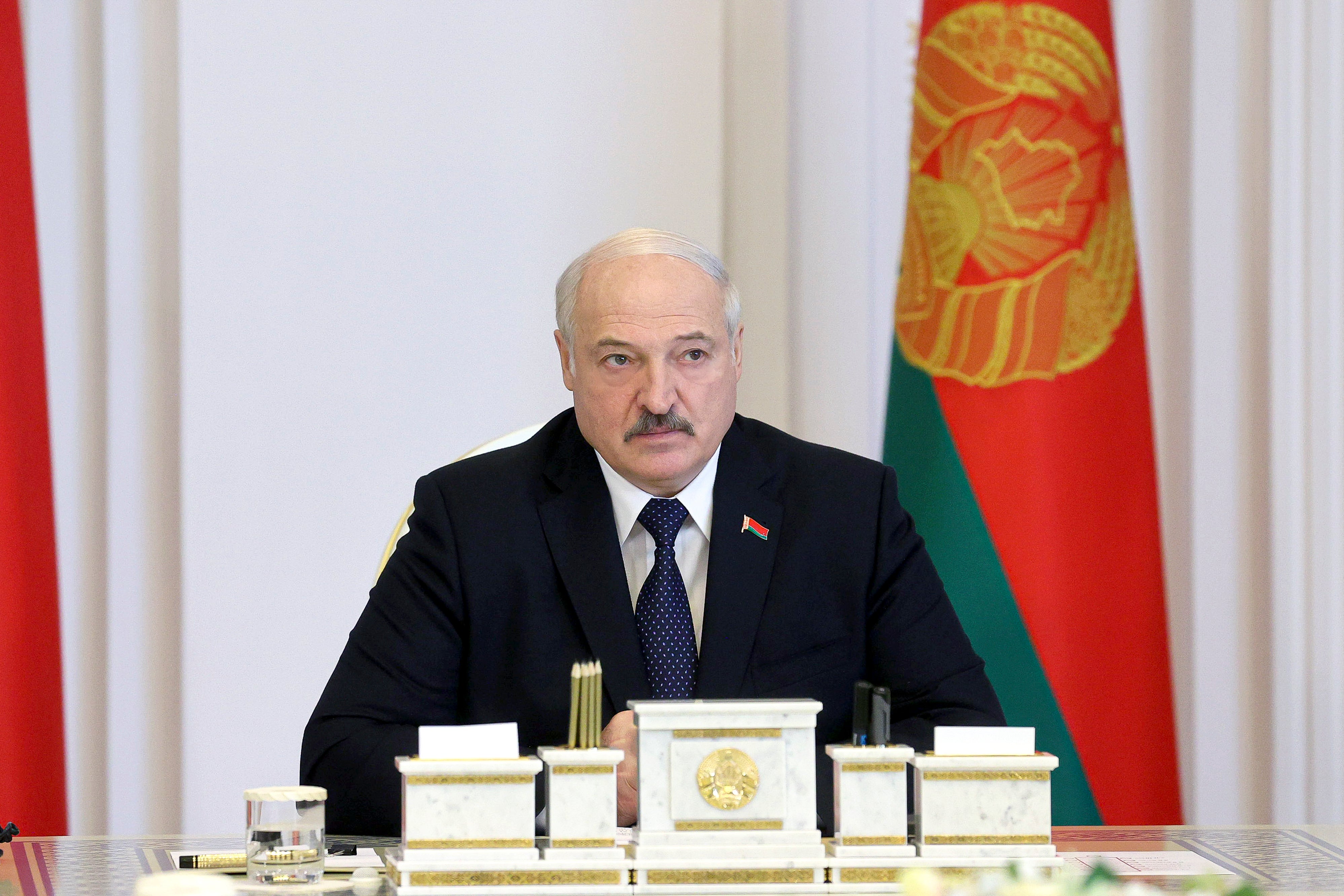Belarus shuts more civil society groups in wide crackdown
Belarusian authorities have announced the closure of 15 nongovernmental organizations as part of the continuing crackdown on civil society activists and independent media

Your support helps us to tell the story
From reproductive rights to climate change to Big Tech, The Independent is on the ground when the story is developing. Whether it's investigating the financials of Elon Musk's pro-Trump PAC or producing our latest documentary, 'The A Word', which shines a light on the American women fighting for reproductive rights, we know how important it is to parse out the facts from the messaging.
At such a critical moment in US history, we need reporters on the ground. Your donation allows us to keep sending journalists to speak to both sides of the story.
The Independent is trusted by Americans across the entire political spectrum. And unlike many other quality news outlets, we choose not to lock Americans out of our reporting and analysis with paywalls. We believe quality journalism should be available to everyone, paid for by those who can afford it.
Your support makes all the difference.Belarusian authorities on Friday announced the closure of 15 nongovernmental organizations, part of a sweeping crackdown on civil society activists and independent media.
The groups ordered to close include the Human Constanta human rights center, the Names charity organization, BelSetka Anti-AIDS group and an organization assisting disabled people.
The groups' closure comes a day after authoritarian President Alexander Lukashenko vowed to continue what he called a “mopping-up operation” against civil society activists whom he denounced as “bandits and foreign agents.”
Human Constanta said in a statement that the authorities didn't explain why they decided to close the group, adding that the action reflects a “growing pressure on civil society in Belarus.”
Also targeted is the Press-Club, an organization that offered education programs for journalists. Its head, Yulia Slutskaya, and three other workers have remained in custody since their arrest in December.
More than 50 NGOs are facing closure. They include the Belarusian Association of Journalists, or BAJ, the biggest and the most respected media organization in the country, and the Belarusian PEN Center, an association of writers led by Svetlana Alexievich the winner of the 2015 Nobel Prize in literature.
Belarusian authorities have ramped up action against NGOs and independent media, with more than 200 raids of offices and apartments of activists and journalists so far this month, according to the Viasna human rights center.
The independent Regionalnaya Gazeta (Regional Newspaper) said Friday it was forced to halt publication following the raid of its office in Maladzyechna, 80 kilometers (50 miles) northeast of the Belarusian capital, Minsk, and the arrest of several of its journalists. Another journalist, photographer Ksenia Halubovich, was arrested Friday while she was taking pictures at a children's hospice in Minsk.
Thirty-two Belarusian journalists in total are in custody, either awaiting trial or serving their sentences.
“The continued harassment of media and journalists in retaliation for their work shows yet again the deliberate intention to stomp out open debate and any views on issues of concern to citizens that are critical of the authorities,” said Teresa Ribeiro, the media freedom representative of the Organization for Security and Cooperation in Europe.
Lukashenko, who faced months of protests triggered by his election to a sixth term in an August 2020 vote that the opposition and the West saw as rigged, responded to demonstrations with a massive crackdown that saw more than 35,000 people arrested and thousands beaten by police.
The relentless repressions have stifled protests, but in a rare show of defiance, a dozen protesters walked late Thursday across downtown Minsk carrying the opposition red-and-white flag. The Viasna human rights center said it marked the first public protest in a month.
Sviatlana Tsikhanouskaya Lukashenko’s main election challenger, who was forced to leave Belarus under official pressure after the election, visited the United States this week for meetings with officials of President Joe Biden's administration and members of Congress to rally support for the Belarusian opposition.
U.S. Under Secretary of State Uzra Zeya, who was among officials who met with Tsikhanouskaya, reaffirmed Washington's support for the Belarusians amid the crackdown and called for the "unconditional release of all political prisoners, an end to the violence and new free and fair elections.”